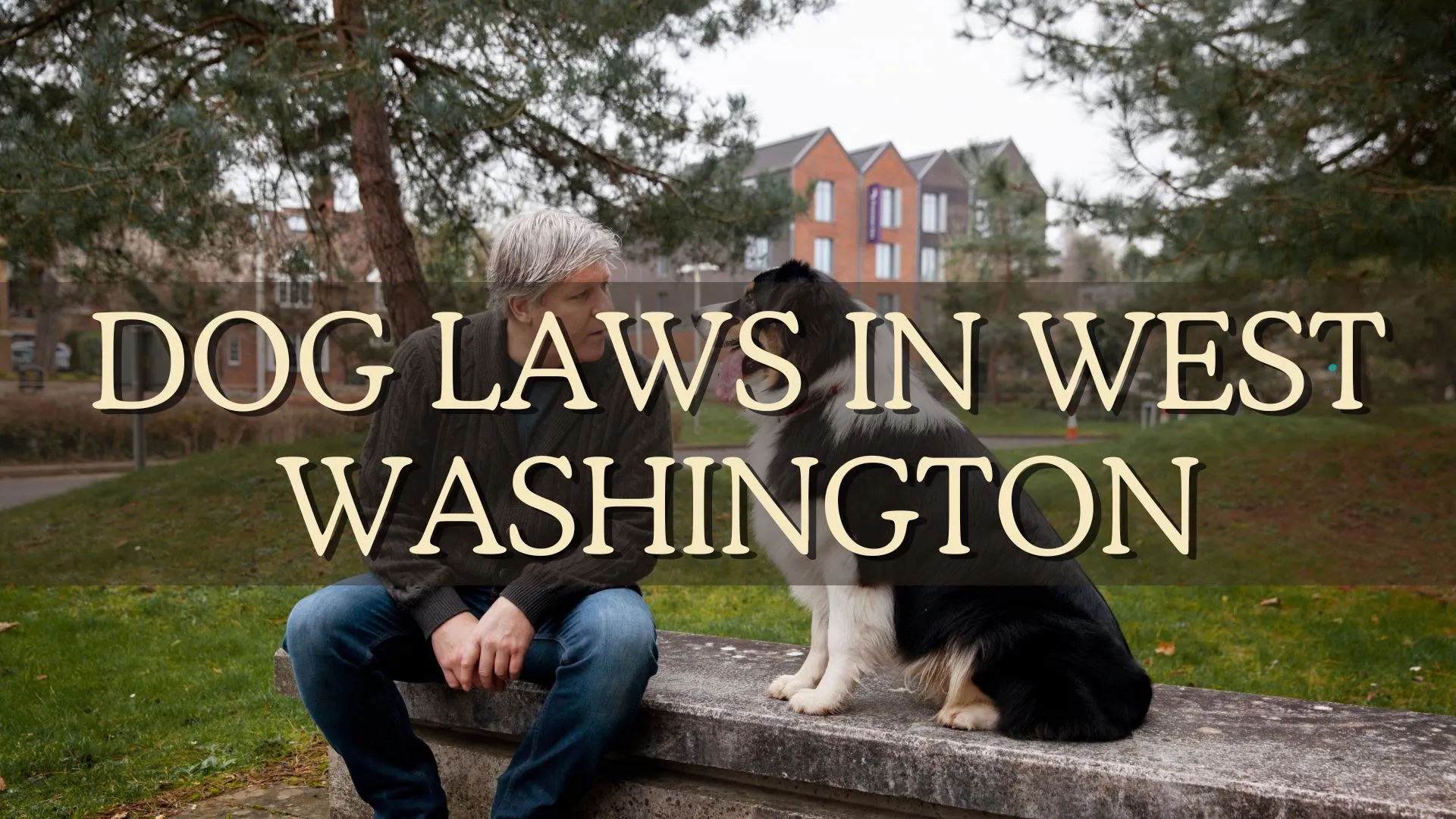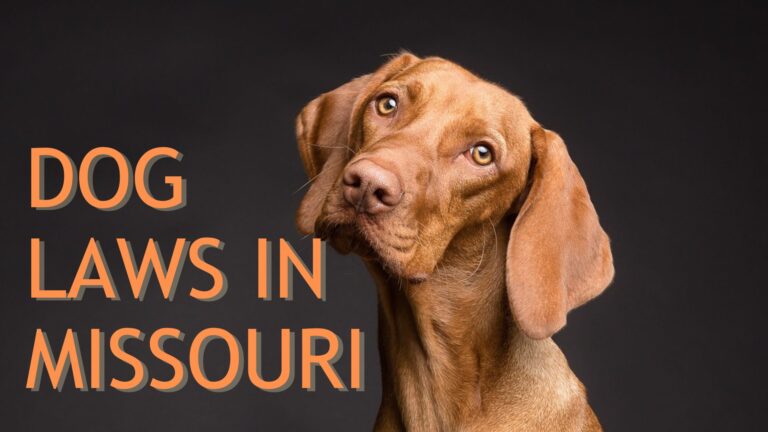Dog Laws in West Washington
As a vet, I treat all kinds of furry companions, and one question I hear surprisingly often is, “what are the dog laws in West Washington?” Did you know that over 63 million households in the US own a dog? That’s a lot of pups, and with that many wagging tails comes the responsibility of understanding the legal landscape.
Dog laws in West Washington encompass a wide range of topics, from licensing and vaccination requirements to leash laws and regulations around potentially dangerous dogs. Knowing these regulations is key to keeping your canine companion safe, healthy, and out of legal trouble. So, let’s explore the world of dog laws in West Washington and ensure a happy, tail-wagging life for you and your furry friend!
Table of Contents
Dog Bite Laws in West Washington
Owning a dog is a joy – their unconditional love, playful spirit, and furry companionship enrich our lives. However, with this joy comes responsibility, especially when it comes to understanding dog bite laws. In West Washington, like most states, these laws aim to protect both people and dogs.

The Cornerstone of Washington’s Dog Bite Law
Washington adheres to a “strict liability” principle for dog bites. This means the dog owner is liable for damages caused by a bite, regardless of prior knowledge of the dog’s aggressive tendencies. This simplifies the legal process for victims, as they don’t need to prove negligence on the owner’s part.
Here’s a breakdown of the key aspects of Washington’s dog bite law, outlined in Revised Code of Washington (RCW) 16.08.040:
- Location of the Bite: The law applies to bites that occur in public places or on private property where the victim has lawful permission to be. This includes the dog owner’s property if, for instance, a guest is bitten.
- Provocation Defense: The owner can potentially avoid liability if they can prove the victim provoked the dog. However, teasing, trespassing, or approaching a dog in a threatening manner wouldn’t automatically qualify as provocation.
- Police Dog Exception: Police dogs acting in the line of duty are exempt from this law.
What Dog Bite Victims Need to Know
If you’ve been bitten by a dog in West Washington, here are some crucial steps:
- Seek Medical Attention: Your health is paramount. Get immediate medical care for the bite and document the injury with photos.
- Report the Bite: Report the incident to Animal Control to initiate an investigation.
- Gather Information: If possible, obtain the dog owner’s name and contact details, as well as witness information.
- Consider Legal Counsel: Consulting an attorney experienced in dog bite cases can help you understand your rights and navigate the legal process.
Additional Considerations
While the core law focuses on bites, other regulations come into play concerning dog behavior:
- Leash Laws: Most cities and counties in West Washington have leash laws requiring dogs to be leashed in public spaces.
- Dangerous Dog Designations: Local authorities can designate dogs with a history of severe bites or aggressive behavior as “dangerous.” These dogs may face additional restrictions, like muzzles or mandatory training.
Preventive Measures
The best way to navigate dog bite laws is to prevent bites altogether. As a responsible dog owner, you can take proactive steps:
- Proper Training: Enroll your dog in obedience training to instill good manners and control.
- Socialization: Socialize your dog from a young age to ensure they interact comfortably with people and other animals.
- Responsible Leashing: Always leash your dog in public spaces and maintain control.
- Supervision: Never leave your dog unattended around young children or unfamiliar people.
- Recognize Signs of Aggression: Learn to identify signs of aggression in your dog and address them promptly.
- Vaccinations: Keep your dog’s vaccinations current, including rabies.
Dog Barking and Noise Laws in West Washington
Dogs bring joy, companionship, and sometimes, a symphony of barks. While that enthusiastic “woof” is part of their charm, excessive barking can disrupt the peace for you and your neighbors. In West Washington, like most places, noise ordinances aim to maintain a balance between responsible dog ownership and a peaceful community.

The Nuances of Noise
West Washington doesn’t have a single, statewide law on dog barking. Instead, noise ordinances are typically enacted at the city or county level. These ordinances define what constitutes a noise nuisance and outline enforcement procedures. Here are some common elements:
- Decibel Levels: Some ordinances set specific decibel limits for acceptable noise levels. However, decibel meters may not always be used for enforcement.
- Duration and Frequency: The length and frequency of barking are often considered. Excessive barking for extended periods is more likely to be deemed a nuisance.
- Reasonable Hours: Barking during reasonable daytime hours may be more tolerated than late-night barking that disrupts sleep.
Finding Your Local Ordinance
Since noise ordinances are local, the specifics vary. Here’s how to find your city or county’s specific regulations:
- Municipal Website: Most city and county websites have sections dedicated to codes and ordinances. Search for terms like “noise ordinance” or “animal control.”
- Animal Control Department: Contact your local Animal Control department. They can provide details on the specific barking regulations in your area.
Dog Barking Ordinances
While local details differ, some common provisions appear in many West Washington noise ordinances:
- Time Restrictions: Many ordinances specify quieter hours, often nighttime, when barking is less tolerated.
- Reasonable Duration: Barking for a short duration, like alerting to a stranger, is generally allowed. However, persistent or prolonged barking may be considered a violation.
- Repeat Offenses: Ordinances often follow a tiered system. After initial warnings, fines may be imposed for subsequent violations.
Addressing Excessive Barking
The best approach is to prevent excessive barking in the first place. Here are some tips:
- Identify the Cause: Understanding why your dog barks is crucial. Boredom, anxiety, separation anxiety, territoriality, or even medical issues can trigger barking.
- Address the Root Cause: Tailor your approach to the reason for barking. Provide enrichment activities to combat boredom, address separation anxiety with training, and seek veterinary help if medical issues are suspected.
- Training and Desensitization: Obedience training can help you teach your dog a “quiet” command. Desensitization techniques can help address triggers like unfamiliar noises.
- Provide Adequate Exercise: A physically and mentally stimulated dog is less likely to bark out of boredom.
- Destructive Barking Deterrents: Consider humane deterrents like citronella spray or bark collars (consult a trainer before using) for particularly persistent barking.
Resolving Barking Conflicts
If your neighbor’s dog barks excessively, open communication is often the best first step.
- Polite Approach: Talk directly to your neighbor and express your concerns in a friendly and understanding manner.
- Offer Solutions: Suggest solutions like providing more playtime for the dog or addressing potential triggers in their yard.
- Mediation: If direct communication fails, consider mediation through your local Animal Control department.
What to Do if You Receive a Noise Violation
If you receive a noise violation for your dog’s barking, here’s what to do:
- Request a Hearing: Most ordinances allow you to contest the violation with a hearing.
- Develop a Plan: Prepare a plan to address the barking, explaining the steps you’re taking to prevent future violations.
- Seek Professional Help: Consider consulting a professional dog trainer for personalized guidance.
Dog Poop Disposal Laws in West Washington
Owning a dog is a joy, but with that joy comes responsibility – one of which is responsible waste disposal. Dog poop isn’t just unpleasant; it can be a health hazard and a nuisance for neighbors and communities. In West Washington, like most places, laws exist to ensure proper dog waste disposal, promoting a cleaner and healthier environment for everyone.

A Statewide Framework
Washington State has a statewide law (RCW 70.94.152) that mandates dog owners to dispose of their dog’s waste in a sanitary manner. This law applies to all public and private property where the public has lawful access.
Here are the key tenets of this law:
- Carrying Requirements: Dog owners must carry a portable container to collect their dog’s waste.
- Disposal Methods: The waste must be disposed of in a designated receptacle or bagged and placed in a trash bin. Leaving waste on the ground is strictly prohibited.
- Fines for Violations: Failure to comply can result in fines, typically enforced by Animal Control or local law enforcement.
Local Ordinances
While the state law sets a baseline, many cities and counties in West Washington have their own, more specific dog poop disposal ordinances. These ordinances may include:
- Leash Law Requirements: Some ordinances may tie dog waste disposal to leash laws. You might be required to carry waste bags only in areas where dogs must be leashed.
- Specific Disposal Locations: Certain ordinances may designate specific waste disposal locations within parks or other public areas.
- Biodegradable Bags: Some localities may require pet waste to be collected in biodegradable bags.
Finding Your Local Ordinance
Since dog waste disposal ordinances are enacted at the city or county level, the specifics can vary. Here’s how to find the exact regulations in your area:
- Municipal Website: Most city and county websites have sections dedicated to codes and ordinances. Search for terms like “dog waste disposal” or “animal control.”
- Animal Control Department: Contact your local Animal Control department. They can provide details on the specific dog waste disposal regulations in your area.
Responsible Poop Disposal
Following the law is essential, but responsible dog ownership goes beyond legal requirements. Here are some additional tips for being a considerate dog owner when it comes to waste disposal:
- Double Bagging: Double bagging can help minimize odors and ensure secure disposal, especially important in warmer weather.
- Tying Bags Securely: Tie waste bags securely to prevent them from splitting or being knocked over by wind or animals.
- Disposing of Bags Properly: Only dispose of waste bags in designated receptacles or trash bins lined with plastic bags.
- Picking Up After Your Dog Everywhere: Don’t just clean up in designated areas; pick up waste wherever your dog goes, including sidewalks, parks, and even your own yard (to prevent contamination and unpleasant odors).
- Educate Others: Lead by example and encourage fellow dog owners to practice responsible waste disposal.
Benefits of Responsible Poop Disposal
Responsible dog waste disposal benefits everyone:
- Public Health: Dog waste can harbor harmful bacteria and parasites that pose health risks to humans and other animals. Proper disposal helps reduce these risks.
- Environmental Protection: Dog waste left on the ground can contaminate waterways and disrupt ecosystems. Proper disposal protects our environment.
- Community Aesthetics: No one enjoys stepping in dog waste. Responsible disposal keeps our communities cleaner and more enjoyable for everyone.
Dog Licensing Laws in West Washington
Owning a dog is a joy that enriches our lives with companionship, unconditional love, and furry adventures. But with this joy comes responsibility, and a crucial aspect of responsible dog ownership in West Washington is dog licensing. Licensing isn’t just about paperwork; it plays a vital role in ensuring your dog’s safety, your peace of mind, and a well-functioning animal control system in your community.

The Importance of Dog Licensing
Dog licensing offers a multitude of benefits for both dogs and their owners:
- Identification and Recovery: A dog license serves as official identification for your dog. If your furry friend gets lost, a license tag with your contact information significantly increases the chances of a safe and swift return.
- Funding for Animal Control: Licensing fees contribute to funding crucial animal control services, including sheltering stray animals, investigating animal cruelty, and promoting responsible pet ownership.
- Vaccination Verification: In some West Washington localities, licensing may be linked to vaccination verification. This ensures your dog is protected from preventable diseases and helps control the spread of illness within the animal population.
- Reduced Fees for Spayed/Neutered Dogs: Many West Washington communities offer reduced licensing fees for dogs that are spayed or neutered, promoting responsible pet population control.
Statewide Requirements and Local Variations
While dog licensing is a statewide requirement in Washington, the specifics are often managed at the city or county level. Here’s an overview of the general framework:
- Licensing Age: All dogs four months of age or older must be licensed in most West Washington jurisdictions.
- Licensing Process: The process typically involves contacting your local animal control department or city/county clerk’s office to obtain a license application. You may need to provide proof of rabies vaccination and spaying/neutering (if applicable).
- Licensing Fees: Fees vary by location but are typically quite affordable.
- Renewal Requirements: Licenses are generally valid for a year and require renewal.
Finding Your Local Ordinance
Since dog licensing ordinances are primarily enacted at the city or county level, details like fees, renewal periods, and additional requirements might vary. Here’s how to find the exact regulations in your area:
- Municipal Website: Most city and county websites have sections dedicated to animal control or pet licensing. Search for terms like “dog license” or “animal control.”
- Animal Control Department: Contact your local Animal Control department. They can provide detailed information on the specific licensing requirements in your area.
Common Considerations for Dog Licensing
While the core requirements are fairly straightforward, here are some additional points to consider:
- Multiple Dogs: If you own multiple dogs, you’ll need a separate license for each one.
- Moving to a New Location: If you move within West Washington, you may need to re-license your dog in your new city or county.
- Fines for Non-Compliance: Failure to license your dog can result in fines, so staying up-to-date is essential.
Responsible Dog Ownership
Dog licensing is a crucial aspect of responsible pet ownership, but it’s not the only step. Here are some additional ways to be a model dog owner:
- Microchipping: Microchipping your dog provides a more permanent form of identification compared to a license tag.
- Vaccination: Keep your dog’s vaccinations current to protect them from preventable diseases.
- Proper Identification: Along with a license tag, consider attaching a collar tag with your contact information.
- Obedience Training: Invest in obedience training to ensure your dog is a well-behaved and responsible member of the community.
Resources
- Washington State Department of Agriculture Provides information on dog licensing requirements and responsible pet ownership.
- Washington State Association of County Animal Control Agencies (WSCACAA): Represents animal control agencies across the state and may offer resources on dog licensing in your area. [Consider searching for WSCACAA contact information or a link to their member directory]
Dog Leash Laws in West Washington
Owning a dog is a joy – their boundless energy, unconditional love, and playful spirit enrich our lives. However, with this joy comes responsibility, particularly when it comes to ensuring their safety and the well-being of others. Dog leash laws in West Washington play a crucial role in achieving this balance.

The Importance of Leash Laws
Leash laws serve a vital purpose in promoting the safety of both dogs and people. Here’s why leashing your dog is important:
- Prevents Accidents: Leashes help maintain control of your dog, minimizing the risk of them running into traffic, chasing other animals, or startling people.
- Reduces Dog Fights: By keeping your dog leashed, you prevent unwanted interactions with other dogs that might lead to fights and injuries.
- Protects Wildlife: Off-leash dogs can pose a threat to wildlife by chasing or harassing them.
- Ensures Public Safety: Leashes give people, especially children, a sense of security when encountering unfamiliar dogs in public spaces.
The Legal Landscape
While there’s no single, comprehensive leash law for all of West Washington, the state does have a general requirement outlined in Revised Code of Washington (RCW) 16.08.050. This law states that every dog must be under the “physical control” of a competent person while off private property.
However, the specifics of leash laws, including designated off-leash areas and enforcement measures, are primarily managed at the city or county level. Here’s what this means for you:
- Local Ordinances: Most cities and counties in West Washington have their own leash laws, which may include:
- Leash Length Requirements: Leash length restrictions might be specified, usually ranging from 6 to 10 feet.
- Designated Off-Leash Areas: Many localities have designated off-leash dog parks where dogs can run freely under your supervision.
- Exemptions: Some ordinances may exempt service animals or dogs under a certain age from leash requirements under specific conditions.
Finding Your Local Leash Law
Since leash laws are enacted at the city or county level, the details can vary. Here’s how to find the exact regulations in your area:
- Municipal Website: Most city and county websites have sections dedicated to animal control or pet ordinances. Search for terms like “dog leash law” or “animal control.”
- Animal Control Department: Contact your local Animal Control department. They can provide detailed information on the leash laws in your area.
Responsible Leashing Practices for Dog Owners
Following the leash law is essential, but responsible dog ownership goes beyond the bare minimum. Here are some additional tips for leashing your dog like a pro:
- Choose the Right Leash: Select a leash that’s strong and appropriate for your dog’s size and strength.
- Maintain Control: Always maintain control of the leash, keeping your dog close enough to prevent them from pulling or lunging.
- Practice Leash Manners: Train your dog to walk calmly and loosely on a leash to avoid creating a nuisance for others.
- Be Mindful of Others: Be courteous to fellow parkgoers. Keep your dog leashed in designated leash areas, even if they seem well-behaved.
- Respect Off-Leash Areas: If you visit an off-leash dog park, ensure your dog is socialized and well-behaved before letting them off-leash.
Benefits of Responsible Leashing
Responsible leashing offers advantages for everyone:
- Safety: Reduces the risk of accidents and injuries for both dogs and people.
- Peace of Mind: Creates a more positive experience for everyone enjoying public spaces.
- Responsible Ownership: Demonstrates your commitment to being a responsible and considerate dog owner.
Dangerous Dog Laws in West Washington
Dogs are cherished companions, offering love, loyalty, and furry friendship. However, in some instances, a dog’s behavior can pose a threat to public safety. West Washington, like many places, has laws in place to address dangerous dogs, aiming to protect both people and animals.
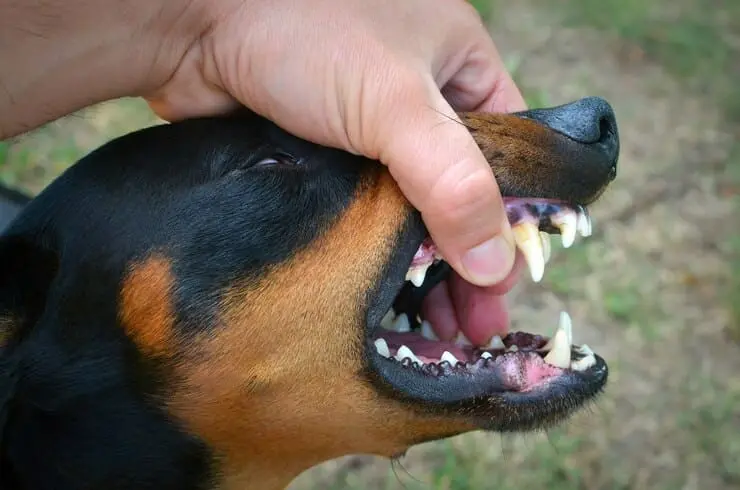
Defining “Dangerous”
Not all forceful canine behavior qualifies a dog as “dangerous” under West Washington law. The legal definition hinges on specific actions and consequences:
- Severe Injury: A dog is considered dangerous if it inflicts severe injury on a human being without provocation, either on public or private property. “Severe injury” is defined as any physical injury resulting in broken bones or disfiguring lacerations requiring multiple sutures or cosmetic surgery.
- Fatal Attacks on Domestic Animals: A dog can also be deemed dangerous if it kills a domestic animal (such as another dog or cat) without provocation while off the owner’s property.
- Previous Aggressive Behavior: If a dog has been previously declared dangerous due to an injury it inflicted on a human, and it again aggressively bites, attacks, or endangers the safety of humans, it can be classified as dangerous once more.
The Legal Framework
While Washington State Revised Code of Washington (RCW) 16.08.070 establishes the baseline definition of a “dangerous dog,” the specific procedures for evaluating and managing dangerous dogs are typically handled at the city or county level. This means:
- Local Ordinances: Most West Washington cities and counties have their own ordinances outlining the process for declaring a dog dangerous, appealing such a designation, and the requirements for owning a dangerous dog.
- Animal Control Involvement: Animal Control departments play a crucial role in investigating potentially dangerous dog incidents and enforcing local dangerous dog ordinances.
Finding Your Local Ordinance
Since dangerous dog ordinances are enacted at the city or county level, the details can vary. Here’s how to find the exact regulations in your area:
- Municipal Website: Most city and county websites have sections dedicated to animal control or dangerous dog laws. Search for terms like “dangerous dog” or “animal control.”
- Animal Control Department: Contact your local Animal Control department. They can provide detailed information on the specific dangerous dog regulations in your area.
The Process of Declaring a Dog Dangerous
The process for declaring a dog dangerous typically involves the following steps:
- Incident Report: An incident report is filed with Animal Control, usually by the person bitten or attacked by the dog, or by law enforcement if the incident involved property damage.
- Investigation: Animal Control will investigate the incident, gathering evidence and statements from witnesses.
- Hearing: The dog owner may have the right to a hearing to contest the designation of their dog as dangerous.
Owning a Dangerous Dog
If your dog is deemed dangerous, West Washington law and local ordinances will likely impose specific requirements on you as the owner. These may include:
- Secure Confinement: You may be required to securely confine your dog indoors or in a properly constructed and locked outdoor enclosure that prevents escape and protects the public from entering.
- Muzzling: Your dog might need to be muzzled whenever it’s outside its enclosure and under your physical control.
- Liability Insurance: Some localities may require you to carry additional liability insurance to cover potential injuries caused by your dog.
- Registration: Registration with the local Animal Control department might be mandatory.
Preventing Dangerous Situations
The best approach is to prevent situations that could lead to your dog being classified as dangerous. Here are some tips for responsible dog ownership:
- Socialization and Training: Early socialization and obedience training are crucial in raising a well-behaved dog comfortable in various situations.
- Understanding Dog Behavior: Learn to recognize canine body language and signs of stress or anxiety in your dog.
- Addressing Behavioral Issues: Seek professional help from a qualified dog trainer if your dog exhibits aggressive tendencies.
- Responsible Breeding: If considering breeding your dog, research responsible breeding practices and temperament testing for potential breeding stock.
Dog Health and Welfare Laws in West Washington
Dogs are cherished members of our families, bringing joy, companionship, and unconditional love. West Washington, like most places, recognizes this bond and has laws in place to protect dog health and welfare.

Key Provisions for Dog Welfare
While there isn’t a single, all-encompassing “dog welfare law” in West Washington, several legal provisions contribute to a framework that protects canine health and well-being:
- Animal Cruelty Laws: Washington State Revised Code of Washington (RCW) 16.08.020 defines animal cruelty as intentionally, knowingly, or recklessly inflicting unnecessary suffering or pain on any animal, including dogs. This encompasses actions like abandonment, starvation, dehydration, denial of veterinary care, or inflicting physical injury.
- Tethering Restrictions: Many West Washington localities have ordinances restricting tethering practices. These ordinances may limit the duration a dog can be tethered, the type of tether allowed, and weather conditions in which tethering is permitted.
- Shelter and Sanitation: Local ordinances may mandate providing adequate shelter and sanitation for dogs. This can include requirements for proper housing, access to clean water, and a clean living space.
- Transportation: Regulations might exist regarding the safe transportation of dogs in vehicles. This could involve ensuring proper ventilation, preventing overheating, and using appropriate restraints.
Finding Your Local Ordinance
Since animal control and welfare regulations are primarily enacted at the city or county level, the specifics can vary significantly. Here’s how to find the exact laws in your area:
- Municipal Website: Most city and county websites have sections dedicated to animal control or animal welfare. Search for terms like “animal cruelty,” “tethering laws,” or “dog care.”
- Animal Control Department: Contact your local Animal Control department. They can provide detailed information on the specific dog health and welfare regulations in your area.
Responsible Dog Ownership
The legal framework forms a foundation, but responsible dog ownership goes beyond following the law. Here’s how to ensure your dog thrives:
- Veterinary Care: Regular veterinary checkups, vaccinations, and parasite prevention are crucial for maintaining your dog’s health.
- Nutritious Diet: Provide your dog with a balanced and age-appropriate diet to ensure they receive the essential nutrients they need.
- Exercise and Enrichment: Exercise helps maintain physical and mental well-being. Offer opportunities for playtime, walks, and mental stimulation through training or interactive toys.
- Humane Training: Positive reinforcement training methods are the most effective way to train your dog and build a strong bond.
- Identification: Microchip your dog and ensure they wear a collar with proper identification tags, including your contact information and rabies vaccination tag.
Benefits of Responsible Dog Ownership
By taking responsibility for your dog’s health and welfare, you reap numerous benefits:
- A Healthier and Happier Dog: Proper care reduces the likelihood of illness and injury, contributing to a longer and happier life for your dog.
- Stronger Bond: Meeting your dog’s needs fosters a deeper connection and strengthens the bond you share.
- Responsible Community Member: Following dog health and welfare laws demonstrates your commitment to being a responsible pet owner and contributing to a safe and humane community for all animals.
Resources
- Washington State Department of Agriculture: Provides information on animal welfare and responsible pet ownership.
- Washington State Veterinary Medical Association (WSVMA) ([invalid URL removed]): Connects you with licensed veterinarians in your area.
- The Humane Society of the United States: National organization dedicated to animal welfare, offering resources on responsible dog ownership.
- American Society for the Prevention of Cruelty to Animals (ASPCA): National organization dedicated to animal welfare, offering resources on dog care and training.
Dog Public Access Laws in West Washington
Dogs are more than just pets; they’re cherished companions who enrich our lives with their playful energy and unconditional love. Sharing adventures with your furry friend is a joy, but navigating public spaces requires understanding the legalities of dog access.

Public Access, Safety, and Responsible Ownership
Dog public access laws in West Washington strike a balance between allowing well-behaved dogs to accompany their owners in public areas and ensuring the safety and comfort of everyone. Here’s why understanding these laws is important:
- Responsible Dog Ownership: Knowing the rules demonstrates your commitment to being a responsible dog owner who respects the rights of others.
- Safety for All: Following leash laws and proper etiquette helps minimize disruptions and potential conflicts with other parkgoers or business patrons.
- Enjoying Public Spaces with Your Dog: Understanding regulations allows you to plan outings with your furry friend and maximize your shared experiences.
A Spectrum of Access
The level of dog access in West Washington varies depending on the type of public space:
- Dog Parks: Designated off-leash areas where dogs can run freely under your supervision. These parks typically have posted rules regarding vaccinations, waste disposal, and social interactions between dogs.
- Public Trails and Parks: Many public trails and parks allow leashed dogs. Leash length restrictions might be in place, so be sure to check signage or contact the park authority beforehand.
- Businesses: Private businesses like shops or restaurants have the discretion to decide whether or not to allow dogs on their premises. Look for signage indicating pet-friendly policies.
- Government Buildings: Access for dogs in government buildings is generally restricted, with exceptions for service animals.
Finding Your Local Regulations
Dog public access laws are primarily managed at the city or county level. Here’s how to find the specific regulations in your area:
- Municipal Website: Most city and county websites have sections dedicated to parks and recreation or animal control. Search for terms like “dog park,” “dog leash law,” or “pet policies.”
- Park Authority: Contact your local park authority if you have questions about leash laws or dog access in specific parks or trails.
- Business Websites or Signage: Businesses often display signage indicating their pet policies. You can also check their website for information.
Responsible Dog Etiquette in Public Spaces
Following the leash laws and understanding access limitations is just the first step. Here’s how to be a courteous dog owner in public spaces:
- Leash Manners: Maintain control of your dog on a leash, keeping them close enough to prevent them from pulling or lunging at others.
- Clean Up After Your Dog: Always carry waste disposal bags and promptly pick up after your dog to maintain a clean and pleasant environment for everyone.
- Be Mindful of Others: Not everyone enjoys being around dogs. Be respectful and keep your dog at a comfortable distance from people who seem apprehensive.
- Respect Off-Leash Areas: If visiting an off-leash dog park, ensure your dog is socialized and well-behaved before letting them off-leash.
Benefits of Responsible Dog Ownership
By following public access laws and practicing responsible etiquette, you create a positive experience for yourself, your dog, and others:
- Quality Time with Your Dog: Enjoy walks, hikes, and other adventures in dog-friendly public spaces with your furry friend.
- Socialization for Your Dog: Public outings provide opportunities for your dog to interact with other dogs and people in a controlled setting, promoting socialization skills.
- Positive Perception of Dogs: Responsible dog ownership in public spaces helps dispel negative stereotypes and promotes a more dog-friendly community.
Resources
- Washington State Parks & Recreation Commission: Offers information on dog-friendly state parks and recreation areas.
- Washington State Department of Agriculture: Provides resources on responsible pet ownership.
- Leave No Trace Center for Outdoor Ethics Promotes responsible outdoor recreation practices, including tips for dog owners enjoying public spaces.
- American Kennel Club (AKC) : National organization dedicated to dogs, offering resources on responsible dog ownership and dog park
Dog Travel and Transportation Laws in West Washington
Traveling with your dog can be an enriching experience, creating lasting memories and strengthening your bond. But before embarking on your West Washington adventure, familiarizing yourself with dog travel and transportation laws is crucial.
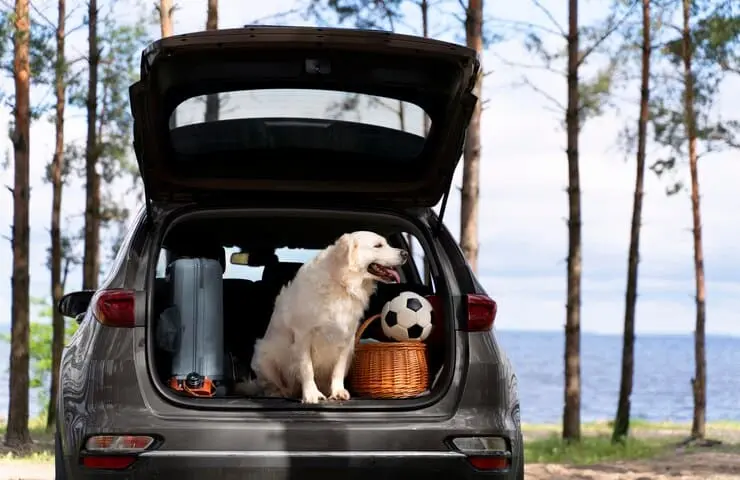
Planning for a Pawsitive Journey
Several factors come into play when traveling with your dog in West Washington:
- Destination: Research dog-friendly regulations at your travel destination, including pet policies at hotels, restaurants, and attractions.
- Mode of Transportation: Whether traveling by car, plane, or public transportation, understand the specific requirements for each mode.
- Dog’s Health and Temperament: Ensure your dog is healthy enough for travel and comfortable in the chosen transportation method.
Traveling by Car
Car travel is a popular choice for West Washington adventures with your dog. Here’s what to keep in mind:
- Secure Transportation: Use a crate or pet carrier that’s appropriately sized and secure your dog with a harness or leash attached to an anchor point in the car (never a collar!).
- Climate Control: Maintain a comfortable temperature in the car and avoid leaving your dog unattended in extreme weather conditions.
- Rest Stops and Hydration: Plan frequent rest stops to allow your dog to eliminate, exercise, and drink water.
- Travel Documents: Consider carrying a copy of your dog’s vaccination records, especially if crossing state lines.
Airline Regulations
If your West Washington adventure involves air travel, different airlines have varying pet policies. Here’s a general overview:
- Size and Breed Restrictions: Some airlines restrict pet size or breed for in-cabin transport. Larger dogs may need to travel as checked baggage.
- Health Certificates: Airlines typically require a health certificate from a licensed veterinarian issued within a specific timeframe before travel.
- Crates and Carriers: Airlines have specific size and ventilation requirements for pet carriers used in the cabin or cargo hold.
Contacting Your Airline: Always consult directly with the airline you’re flying with for the latest pet travel information and to make the necessary arrangements for your dog.
Public Transportation Considerations
Public transportation options in West Washington may have limitations on pet travel. Here’s what to research:
- Pet Policies: Contact the specific public transportation provider (bus line or train company) to understand their pet policies, including size restrictions, fees, and required documentation.
- Service Animals: Federal law protects the right to travel with service animals on public transportation.
Finding Regulations
Since dog travel regulations can vary depending on the mode of transportation and even the specific company, here are some resources to help you find the information you need:
- Washington State Department of Agriculture: Provides general information on animal transport within Washington.
- Federal Aviation Administration (FAA) : Offers pet travel guidelines for airlines.
- American Kennel Club (AKC) : Provides resources on traveling with your dog, including airline pet policies.
- Public Transportation Providers: Contact the specific bus line, train company, or ferry service you plan to use to inquire about their pet policies.
Additional Tips
While regulations provide a framework, here are some additional tips for a smooth and safe travel experience with your dog:
- Microchip Your Dog: Microchipping increases the chances of reuniting with your dog if they get separated during travel.
- Familiarize Your Dog with the Carrier: Allow your dog to become comfortable with their carrier well before travel.
- Pack Essentials: Bring food, water, waste disposal bags, medications (if applicable), and familiar toys for your dog.
- Plan for Accidents: Pack cleaning supplies in case of motion sickness or accidents.
Benefits of Responsible Dog Travel
Traveling with your dog in West Washington can be an enriching experience, offering:
- Shared Adventures: Create lasting memories by exploring new places together.
- Stress Relief: Dogs can provide companionship and reduce travel anxiety for some pet owners.
- Exercise Opportunities: Travel can involve new walks, hikes, and outdoor adventures for your dog.
Dog Housing and Accommodation Laws in West Washington
Dogs are cherished members of the family, and finding a place to live that welcomes them can be a priority for many West Washington residents. However, navigating the legalities of dog-friendly housing can sometimes feel like navigating a maze.
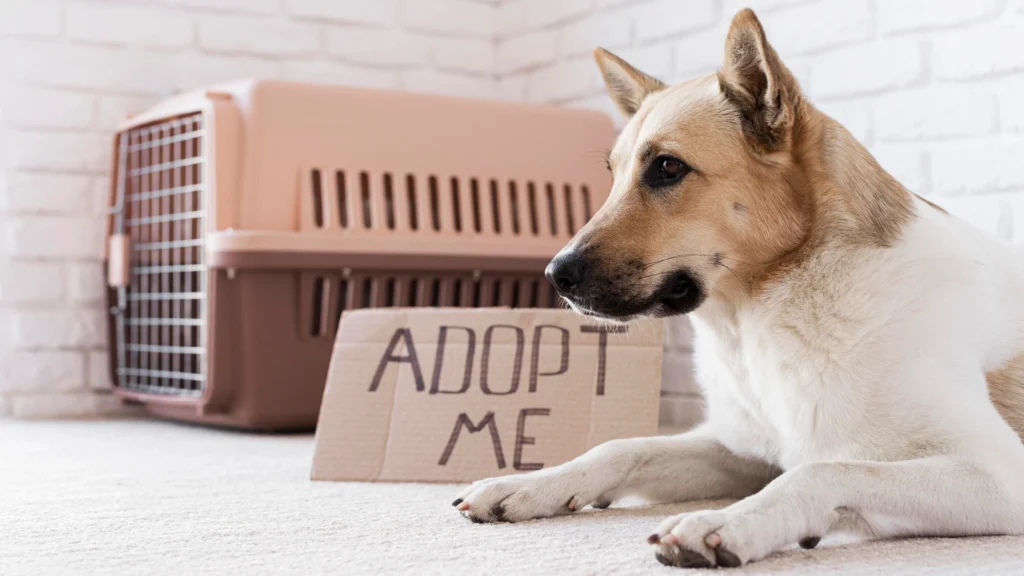
Federal Laws and Local Variations
While there isn’t a single, all-encompassing “dog housing law” in West Washington, several legal provisions and industry standards contribute to the landscape of dog-friendly housing:
- Fair Housing Act (FHA): This federal law prohibits discrimination in housing based on several factors, including disability. This protection extends to people with disabilities who rely on service animals. Landlords cannot deny housing or impose additional fees solely because of a service animal.
- Reasonable Accommodation: The FHA requires landlords to make reasonable accommodations for service animals, such as waiving breed restrictions or pet fees.
- Emotional Support Animals (ESAs): While not covered by the FHA, some West Washington landlords may choose to accommodate Emotional Support Animals (ESAs) with proper documentation from a licensed mental health professional. However, unlike service animals, ESAs are not exempt from breed or weight restrictions.
- Local Ordinances: Some West Washington cities or counties might have ordinances related to pet restrictions in multi-unit housing. These may involve limitations on the number of pets allowed per unit or breed restrictions.
Rental Policies
Even if not mandated by law, many landlords in West Washington have their own pet policies outlined in the lease agreement. Here’s what to pay attention to:
- Pet Fees: Landlords may charge additional fees like pet deposits or monthly pet rent.
- Breed Restrictions: Some landlords might have breed restrictions based on size, potential for aggression, or insurance limitations.
- Weight Limits: Weight limitations for dogs might be in place.
- Number of Pets: Rental agreements may specify the maximum number of pets allowed per unit.
Resources
- Online Rental Listings: Many online rental platforms allow you to filter searches for “pet-friendly” properties.
- Contacting Property Management Companies: Inquire about their pet policies when contacting property management companies.
- Local Animal Shelters and Rescue Organizations: They may have resources or listings for dog-friendly rentals.
Responsible Dog Ownership
Finding a dog-friendly home is just the first step. Here’s how to be a responsible dog owner in your new place:
- Respect the Lease Agreement: Abide by the pet policies outlined in your lease, including pet fees, breed restrictions, and noise limitations.
- Clean Up After Your Dog: Always dispose of your dog’s waste promptly and keep your living space clean and free of pet odors.
- Be Mindful of Neighbors: Train your dog to be quiet and respectful of other residents in the building.
- Get Pet Insurance: Consider pet insurance to help cover unexpected veterinary costs.
Responsible Dog Ownership
Being a responsible dog owner benefits you, your canine companion, and your community:
- Peaceful Coexistence: Following pet policies and practicing responsible pet ownership fosters a positive environment for everyone in the building.
- Happy and Well-Cared-For Dog: A clean and well-managed living space contributes to your dog’s overall well-being.
- Maintaining Housing Options: Responsible dog ownership helps ensure continued access to dog-friendly housing for yourself and other dog owners.
Advocating for Change
While you can’t control a landlord’s pet policies, you can advocate for change. Here are some options:
- Open Communication: Talk to your landlord about the importance of dog-friendly housing options and the benefits of responsible dog ownership.
- Tenant Associations: If your building has a tenant association, work together to advocate for pet-friendly policies.
- Local Advocacy Groups: Connect with local animal rights or tenant advocacy groups who might be working towards more inclusive pet policies.
Dog Adoption and Sale Laws in West Washington
Dogs bring immense joy and companionship into our lives. Whether you’re considering welcoming a furry friend through adoption or responsible purchase, understanding the legalities of dog acquisition in West Washington is crucial.

The Landscape of Dog Acquisition
There are two primary ways to acquire a dog in West Washington: adoption and purchase. Both options come with legal considerations and ethical implications:
- Dog Adoption: Adopting a dog from a shelter or rescue organization provides a loving home for a deserving animal in need. Shelters and rescues often have adoption fees to cover the costs of caring for the animals.
- Dog Purchase: Purchasing a dog from a reputable breeder allows you to choose a specific breed or bloodline. However, responsible breeder practices and legal regulations surrounding dog sales are vital considerations.
Dog Adoption Laws
The process of adopting a dog in West Washington is generally straightforward:
- Shelters and Rescues: Most shelters and rescue organizations require potential adopters to complete an application process that may include a background check and home visit.
- Adoption Fees: Adoption fees vary but typically cover the cost of vaccinations, spaying/neutering, microchipping, and other essential care the dog received before adoption.
- Contracts and Agreements: Adopting from a shelter or rescue often involves signing an adoption contract outlining your responsibilities as a pet owner.
Resources for Dog Adoption
West Washington has a network of animal shelters and rescue organizations dedicated to finding loving homes for dogs. Here’s how to find your perfect match:
- Local Animal Shelters: Contact your local animal shelter or visit their website to see adoptable dogs.
- Rescue Organizations: Research reputable rescue organizations in your area that specialize in specific breeds or needs.
- Online Adoption Platforms: Websites like Petfinder or Adopt-a-Pet allow you to search for adoptable dogs in your area.
Benefits of Dog Adoption
Choosing adoption offers numerous benefits:
- Saving a Life: You provide a loving home for a dog in need of a second chance.
- Reduced Shelter Overcrowding: Adoption helps alleviate overcrowding in shelters, allowing them to help more animals.
- Variety of Breeds: Shelters and rescues have dogs of all ages, breeds, and mixes, increasing the chances you’ll find the perfect fit for your lifestyle.
Dog Sale Laws
While adoption is a noble choice, some individuals opt to purchase a dog from a breeder. Here’s what to know about dog sales in West Washington:
- Breeder Regulations: Washington State Department of Agriculture (WSDA) regulates commercial dog breeders. Licensed breeders are required to adhere to specific standards regarding animal care, housing, and recordkeeping.
- Puppy Lemon Laws: The Washington Consumer Protection Act offers some protections for dog purchases. If you buy a puppy from a breeder and it develops a serious health condition within a year, you may be entitled to a replacement puppy, a refund, or veterinary care reimbursement (certain conditions apply).
- Red Flags to Avoid: Be wary of breeders who operate outside of regulations, sell puppies too young (under 8 weeks old), or cannot provide health records for the parents.
Finding a Reputable Breeder
If you choose to purchase a dog from a breeder, prioritize responsible breeding practices:
- Kennel Club Registration: Look for breeders who register their dogs with reputable kennel clubs like the American Kennel Club (AKC).
- Health Testing: Responsible breeders conduct health screening on breeding dogs to minimize the risk of genetic disorders in puppies.
- Breeder Reputation: Research the breeder’s reputation and visit their facilities to assess the overall care and environment for the dogs.
Benefits of Purchasing a Dog from a Reputable Breeder
Purchasing from a responsible breeder offers some advantages:
- Specific Breed Traits: You can choose a breed known for specific temperaments or traits that suit your lifestyle.
- Predictable Appearance: You have a better idea of the dog’s adult size and appearance.
- Socialization and Training: Some responsible breeders provide early socialization and training for their puppies.
Dog Park and Recreation Laws in West Washington
Dogs are more than just pets; they’re cherished companions who thrive on exercise and social interaction. West Washington offers a wealth of dog parks and recreational spaces where your furry friend can unleash their playful energy. However, navigating these areas requires understanding the legalities and responsible dog park etiquette.
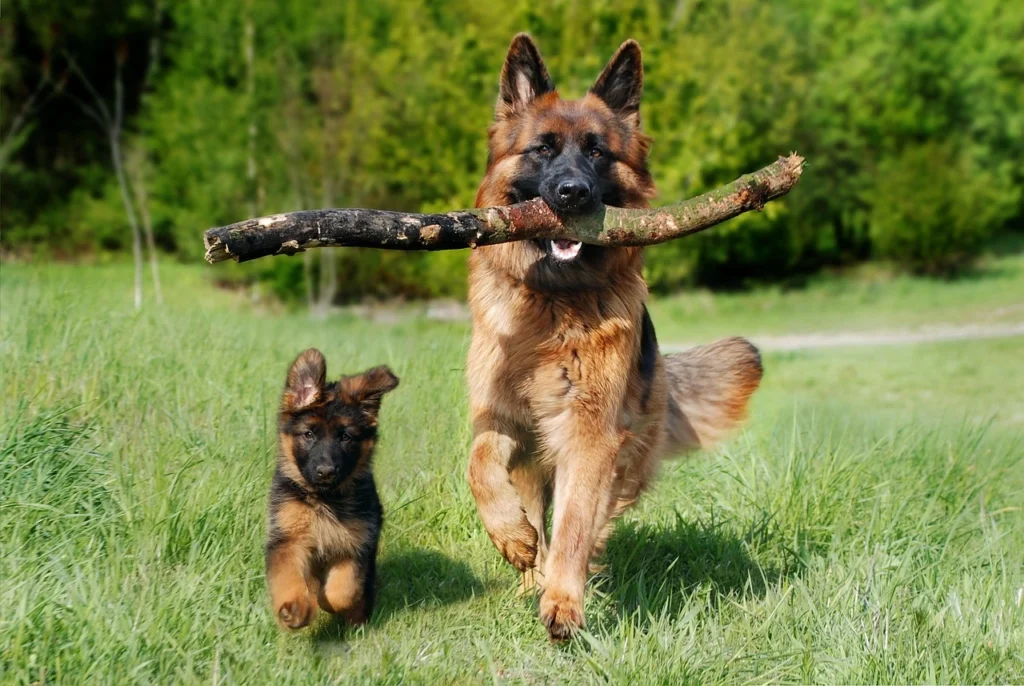
A Spectrum of Off-Leash Areas
West Washington boasts a variety of dog parks and off-leash areas catering to different needs:
- Fenced Dog Parks: These designated areas are fully enclosed, allowing dogs to roam freely under your supervision. Most dog parks have posted rules regarding vaccinations, waste disposal, and dog-to-dog social interactions.
- Off-Leash Trails: Some trails permit dogs off-leash, often requiring them to be within voice control of their owner.
- Multi-Use Areas: Certain public spaces, like beaches during off-peak hours, might allow off-leash access with leash laws enforced during peak times.
Local Dog Park and Recreation Laws
Dog park and recreation laws are primarily managed at the city or county level. Here’s how to find the specific regulations in your area:
- Municipal Website: Most city and county websites have sections dedicated to parks and recreation or animal control. Search for terms like “dog park,” “off-leash area,” or “dog park rules.”
- Park Authority: Contact your local park authority if you have questions about leash laws or dog access in specific parks or trails.
- Park Signage: Most dog parks have signage outlining the specific rules and regulations for that area.
Responsible Dog Park Etiquette
Following leash laws and understanding access limitations is just the first step. Here’s how to be a courteous dog owner and ensure a positive experience for everyone at the dog park:
- Vaccinations and Licensing: Ensure your dog is up-to-date on vaccinations and has a valid pet license before visiting a dog park.
- Supervise Your Dog: Always maintain control of your dog, even in an off-leash area. Be aware of your dog’s body language and behavior to prevent conflicts with other dogs.
- Clean Up After Your Dog: Always carry waste disposal bags and promptly pick up after your dog to maintain a clean and pleasant environment for everyone.
- Respectful Introductions: Don’t force interactions between your dog and others. Allow dogs to greet each other naturally and politely remove your dog if they seem uncomfortable.
- Be Mindful of Others: Not everyone enjoys being around dogs. Keep your dog at a comfortable distance from people who seem apprehensive.
Benefits of Responsible Dog Park and Recreation Use
By following dog park and recreation laws and practicing responsible etiquette, you create a positive experience for yourself, your dog, and others:
- Exercise and Socialization: Dog parks offer a safe space for your dog to run, play, and interact with other dogs, promoting physical and mental well-being.
- Stress Relief and Bonding: Spending time outdoors with your dog reduces stress and strengthens your bond.
- Positive Perception of Dogs: Responsible dog park users contribute to a more dog-friendly community by demonstrating responsible ownership.
Exploring Recreational Opportunities with Your Dog
West Washington offers numerous recreational opportunities you can enjoy with your dog, provided they are leashed and under control:
- Hiking Trails: Many trails allow responsible dog owners to enjoy scenic hikes with their canine companions.
- Beaches: Some beaches permit dogs during off-peak hours, offering a refreshing escape for both you and your dog. Always check specific leash laws and clean up after your dog.
- Camping: Certain campgrounds welcome well-behaved, leashed dogs. Familiarize yourself with the campground’s pet policies before booking your trip.
Dog Food and Nutrition Laws in West Washington
Dogs are cherished members of the family, and their well-being relies heavily on proper nutrition. While there aren’t specific laws dictating what you feed your dog in West Washington, understanding the regulatory framework and best practices can ensure you’re providing your canine companion with a healthy and balanced diet.

The Role of Regulations
While West Washington doesn’t have laws mandating specific dog food ingredients, the federal government plays a crucial role in ensuring the safety of commercially available pet food:
- Food and Drug Administration (FDA): The FDA is responsible for regulating the safety of animal food, including dog food. They establish guidelines for manufacturing practices, ingredient labeling, and potential recalls of contaminated pet food.
- Association of American Feed Control Officials (AAFCO): The AAFCO is a non-governmental organization that sets nutrient profiles for dog food based on a dog’s age, life stage, and activity level. Many dog food manufacturers formulate their products to meet these AAFCO guidelines.
Finding the Right Food for Your Dog
Nutritional needs vary depending on your dog’s breed, age, activity level, and overall health. Here’s what to consider when choosing dog food:
- Life Stage: Puppies, adult dogs, and senior dogs have different nutritional requirements. Opt for food specifically formulated for your dog’s life stage.
- Breed Considerations: Certain breeds might benefit from specialized diets catering to their specific size or health concerns.
- Activity Level: Highly active dogs may need a diet with higher protein and calorie content for optimal energy levels.
- Veterinarian Recommendations: Consult your veterinarian for personalized dietary advice based on your dog’s unique needs and health history.
Understanding Dog Food Labels
Dog food labels can be confusing, but essential information can guide your selection:
- Guaranteed Analysis: This section lists the minimum and maximum percentages of protein, fat, fiber, and moisture content in the food.
- Ingredient List: Ingredients are listed in descending order by weight, with the first ingredient being the most prevalent.
- AAFCO Statement: Look for a statement indicating the food meets the AAFCO nutrient profiles for your dog’s life stage.
Additional Considerations
While the label provides valuable information, consider these additional factors:
- Fresh Water: Ensure your dog has access to clean, fresh water at all times.
- Portion Control: Follow feeding recommendations on the dog food packaging or consult your veterinarian for guidance on appropriate portion sizes to avoid overfeeding.
- Table Scraps: Limit table scraps as they can disrupt your dog’s balanced diet and potentially cause digestive issues.
- Treats: Treats should be given in moderation and factored into your dog’s daily calorie intake.
Resources
- Washington State University College of Veterinary Medicine: Provides resources on pet health and nutrition.
- Association of American Feed Control Officials (AAFCO): Offers information on dog food nutrient profiles and labeling.
- Your Veterinarian: They are the most qualified resource to guide you on your dog’s specific dietary needs and recommend suitable food options.
Benefits of a Balanced Diet for Your Dog
Providing your dog with a balanced and nutritious diet offers numerous benefits:
- Improved Overall Health: A proper diet contributes to a healthy weight, strong bones and teeth, a shiny coat, and a robust immune system.
- Increased Energy Levels: Proper nutrition fuels your dog’s activity and promotes physical well-being.
- Enhanced Cognitive Function: A balanced diet can support your dog’s cognitive health and learning abilities.
Dog Health and Veterinary Care Laws in West Washington
Dogs are treasured members of the family, and their well-being relies heavily on responsible pet ownership and access to quality veterinary care. While West Washington doesn’t have specific laws mandating veterinary care, several legal provisions and industry standards contribute to a framework for responsible pet ownership and animal welfare.
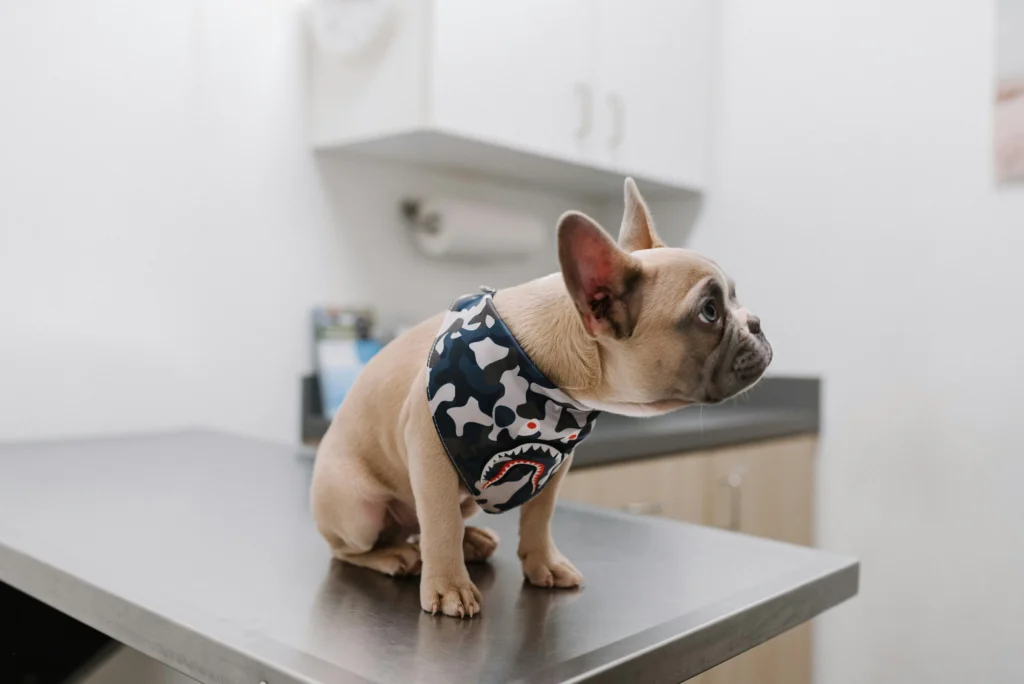
The Landscape of Dog Health Care
While there aren’t codified laws requiring veterinary care for dogs in West Washington, the responsibility for their well-being falls on pet owners:
- Ethical Obligation: As a dog owner, you have an ethical responsibility to ensure your dog receives proper veterinary care to maintain their health and prevent suffering.
- Animal Cruelty Laws: West Washington, like all states, has animal cruelty laws that protect pets from neglect and abuse. Failure to provide necessary veterinary care could be considered animal cruelty under these laws.
Role of Veterinarians
Licensed veterinarians play a crucial role in maintaining your dog’s health:
- Diagnosis and Treatment: Veterinarians diagnose and treat illnesses and injuries in dogs.
- Preventative Care: Regular veterinary checkups, vaccinations, and parasite control are essential for preventing disease and promoting overall health.
- Spaying/Neutering: Veterinarians perform spaying and neutering procedures to help control pet populations and potentially reduce the risk of certain health issues.
Finding a Reputable Veterinarian in West Washington
West Washington has a network of qualified veterinarians dedicated to canine health:
- American Veterinary Medical Association (AVMA): The AVMA website allows you to search for licensed veterinarians in your area.
- Online Reviews and Recommendations: Read online reviews and ask friends, family, or local shelters for recommendations.
- Veterinarian Specialties: Some veterinarians specialize in specific areas like cardiology, dermatology, or behavior. Choose a veterinarian suited to your dog’s needs.
Veterinary Licensing and Practice
The Washington State Veterinary Board of Governors oversees the licensing and practice of veterinary medicine in the state. Here’s what to know:
- Veterinarian Licensing: Only licensed veterinarians can diagnose and treat animals in West Washington.
- Veterinary Technician Roles: Licensed veterinary technicians can assist veterinarians with tasks under their supervision.
Vaccinations and Rabies Requirements
Vaccinations are crucial for protecting your dog from preventable diseases:
- Core Vaccinations: Puppies require a series of core vaccinations to protect against diseases like distemper, parvovirus, and rabies. Booster vaccinations are needed throughout your dog’s life.
- Rabies Vaccination: Rabies vaccination is mandatory by law in West Washington. Puppies must be vaccinated by four months old and receive boosters as required by the vaccine manufacturer.
Other Considerations
Beyond veterinary care, responsible dog ownership encompasses other important aspects:
- Proper Nutrition: Providing your dog with a balanced and nutritious diet is essential for their health.
- Exercise and Mental Stimulation: Regular exercise and mental stimulation are vital for your dog’s physical and mental well-being.
- Licensing and Identification: Most cities and counties in West Washington require dog licensing. Ensure your dog has a collar with identification tags, including your contact information and rabies vaccination tag.
Finding Resources
Veterinary care can be expensive. Here are some resources for pet owners facing financial limitations:
- Veterinary Financial Assistance Programs: Organizations like the American Animal Hospital Association (AAHA) offer financial assistance programs for pet owners in need.
- Veterinary Schools: Veterinary schools sometimes offer low-cost clinics for pets.
- Pet Insurance: Consider pet insurance to help manage unexpected veterinary bills.
Responsible Dog Ownership
Providing your dog with responsible care, including regular veterinary checkups, vaccinations, and proper nutrition, offers numerous benefits:
- Improved Health and Longevity: Preventive care can identify and address health concerns early, leading to a longer, healthier life for your dog.
- Reduced Risk of Disease: Vaccinations and parasite control help protect your dog from preventable illnesses.
- Enhanced Quality of Life: A healthy dog with their needs met experiences a better quality of life, leading to a stronger bond with you.
- Peace of Mind: Knowing you’re providing your dog with the best possible care brings peace of mind and strengthens the human-animal bond.
Dog Identification and Microchipping Laws in West Washington
Dogs are cherished companions, and ensuring their safety and well-being is a top priority for responsible pet owners. West Washington, like many states, recognizes the importance of proper dog identification.

The Importance of Dog Identification
While there isn’t a statewide law mandating dog identification in West Washington, most cities and counties have ordinances requiring dog licensing. However, the benefits of proper identification extend far beyond legal compliance:
- Increased Recovery Rate: A lost dog with proper identification has a significantly higher chance of being reunited with their owner.
- Reduced Shelter Intake: Prompt identification and return of lost dogs helps alleviate overcrowding in animal shelters.
- Proof of Ownership: Identification can help verify your ownership if your dog becomes involved in an incident.
Types of Dog Identification
Here’s a breakdown of the different forms of dog identification used in West Washington:
- Dog License: Most cities and counties require dog licensing. The license tag serves as a form of identification and often helps fund animal control services.
- Collar and ID Tags: A well-fitting collar with identification tags is essential. Tags should include your dog’s name, your contact information, and a rabies vaccination tag.
The Power of Microchipping
Microchipping is a permanent form of identification that significantly increases the chances of a lost dog finding their way back home:
- Microchip Implantation: A veterinarian implants a tiny microchip containing a unique identification number under your dog’s skin, usually between the shoulder blades.
- National Microchip Registry: Register your dog’s microchip information with a national microchip registry. This allows animal shelters and veterinary clinics to scan for the chip and contact you if your dog is found.
Microchipping Laws and Regulations
While microchipping isn’t currently mandated by law in West Washington, there are situations where it might be required:
- Certain Breeds or Activities: Some dog breeds or dogs participating in specific activities might be required to be microchipped by breed clubs or event organizers.
- Future Legislation: As pet identification technology evolves, microchipping could become mandatory in the future.
Finding Resources
- Local Animal Control Agencies: They can provide information on dog licensing requirements and may offer microchipping services or resources.
- Veterinarians: Most veterinarians offer microchipping services and can register your dog’s microchip information.
- Animal Shelters and Rescue Organizations: They might offer low-cost microchipping services or know of resources in your area.
- National Microchip Registry Companies: Research reputable companies offering microchip registration services.
Benefits of Microchipping Your Dog
Microchipping offers numerous benefits for responsible dog owners:
- Permanent Identification: Unlike collars and tags that can fall off, a microchip provides a permanent form of identification.
- Increased Recovery Rate: Microchipped dogs are much more likely to be reunited with their owners if they get lost.
- Peace of Mind: Knowing your dog is microchipped provides peace of mind and allows you to focus on finding them if they go missing.
Tips for Responsible Dog Ownership and Identification
- License Your Dog: Always comply with local dog licensing ordinances.
- Use a Well-Fitting Collar and ID Tags: Ensure your dog wears a comfortable collar with clear and up-to-date identification tags.
- Microchip Your Dog: Consider microchipping your dog as a permanent and reliable identification method.
- Keep Your Contact Information Updated: Ensure the information associated with your dog’s license and microchip is current.
Dog Breeding and Genetics Laws in West Washington
For dog lovers passionate about specific breeds, breeding can be a rewarding experience. However, responsible breeding practices are crucial for the health and well-being of future generations. West Washington, like many states, has regulations and industry standards surrounding dog breeding to promote ethical practices and prevent animal cruelty.
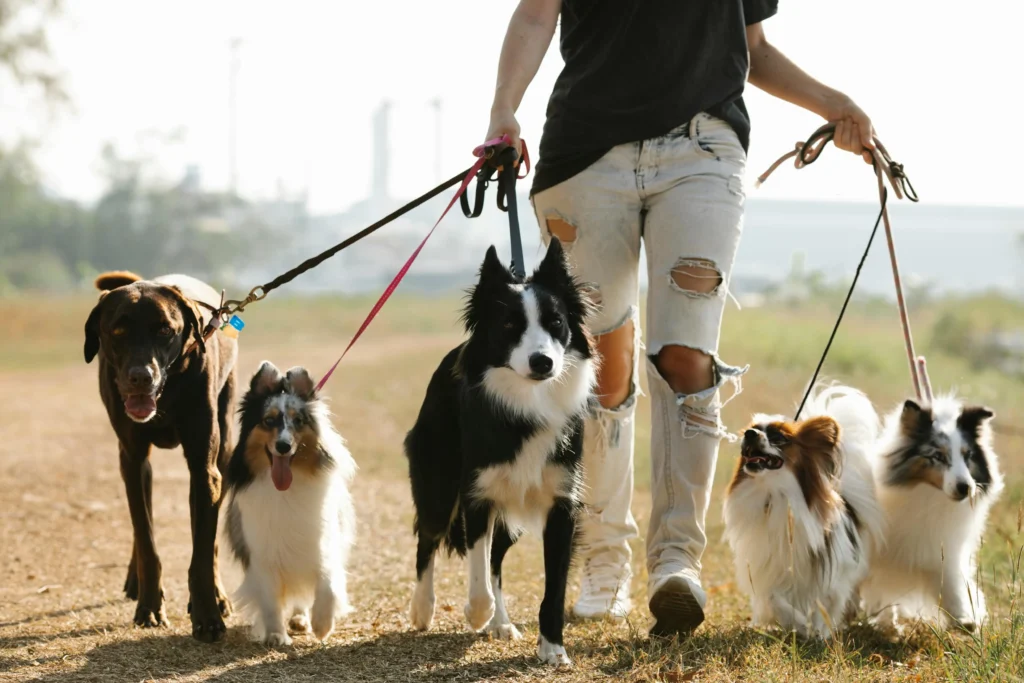
The Landscape of Dog Breeding
There are two primary avenues for dog breeding in West Washington:
- Hobby Breeders: Individuals who occasionally breed their dogs, often focusing on preserving specific breed characteristics.
- Commercial Breeders: Large-scale operations that breed dogs frequently, often for profit.
Regulations for Dog Breeders
While there isn’t a single, overarching “dog breeding law” in West Washington, several regulations and industry standards are relevant:
- Washington State Department of Agriculture (WSDA): The WSDA regulates commercial dog breeders. To operate legally, a kennel license is required. Licensed breeders must adhere to specific standards regarding animal care, housing, and recordkeeping. These standards address factors like:
- Adequate space and proper shelter for breeding dogs.
- Sanitation and hygiene practices to prevent the spread of diseases.
- Veterinary care for breeding dogs and puppies.
- Recordkeeping of breeding activities and pedigrees.
- Local Ordinances: Some cities and counties in West Washington might have additional ordinances related to dog breeding, such as limitations on the number of litters a breeder can have per year or zoning restrictions for kennel operations.
Responsible Breeding Practices
Ethical dog breeding goes beyond simply complying with the law. Here are some key principles for responsible breeders:
- Breed Standards: Breeders should have a deep understanding of the breed standard and strive to produce healthy dogs that exemplify those characteristics.
- Genetic Testing: Responsible breeders screen breeding stock for genetic disorders known to affect their breed and avoid breeding dogs with a high risk of passing on these conditions.
- Temperament Evaluation: Selecting breeding stock with sound temperaments helps ensure future generations have good temperaments suitable for companionship.
- Socialization and Training: Reputable breeders begin socialization and training of puppies early, laying the foundation for well-adjusted and adoptable dogs.
Finding Reputable Dog Breeders
If you’re looking for a puppy from a responsible breeder in West Washington, here are some resources:
- National Breed Clubs: Many breeds have national clubs that maintain breeder directories and promote ethical breeding practices.
- American Kennel Club (AKC) Marketplace: The AKC Marketplace allows breeders to list their puppies, but it’s important to go beyond the listing and research the breeder’s practices.
- Online Reviews and Recommendations: Read online reviews and ask veterinarians or dog trainers for recommendations.
Responsible Breeding Practices
Responsible breeding practices offer numerous benefits:
- Healthy and Well-Adjusted Dogs: Genetic testing and careful selection of breeding stock help reduce the risk of inherited diseases and promote sound temperaments.
- Reduced Shelter Intake: Responsible breeders contribute to a decrease in shelter populations by finding responsible homes for their puppies.
- Preserving Breed Standards: Ethical breeding helps maintain the unique characteristics and qualities of specific breeds.
Alternatives to Breeding Your Dog
Not everyone is suited for dog breeding. Here are some alternative ways to contribute to the dog world:
- Volunteering at a Shelter or Rescue Organization: Shelters and rescues need help with dog care, adoption events, and fostering.
- Participating in Dog Sports or Activities: Many dog sports and activities offer opportunities to enjoy your dog’s company and contribute to the breed community.
- Educating Others About Responsible Dog Ownership: Spreading awareness about responsible pet ownership and ethical breeding practices can make a positive impact.
Dog Environmental Impact Laws in West Washington
Dogs bring joy and companionship into our lives, but their presence can also have an environmental impact. While West Washington doesn’t have specific laws solely targeting dog waste, there are regulations and best practices aimed at promoting responsible pet ownership and minimizing environmental impact.
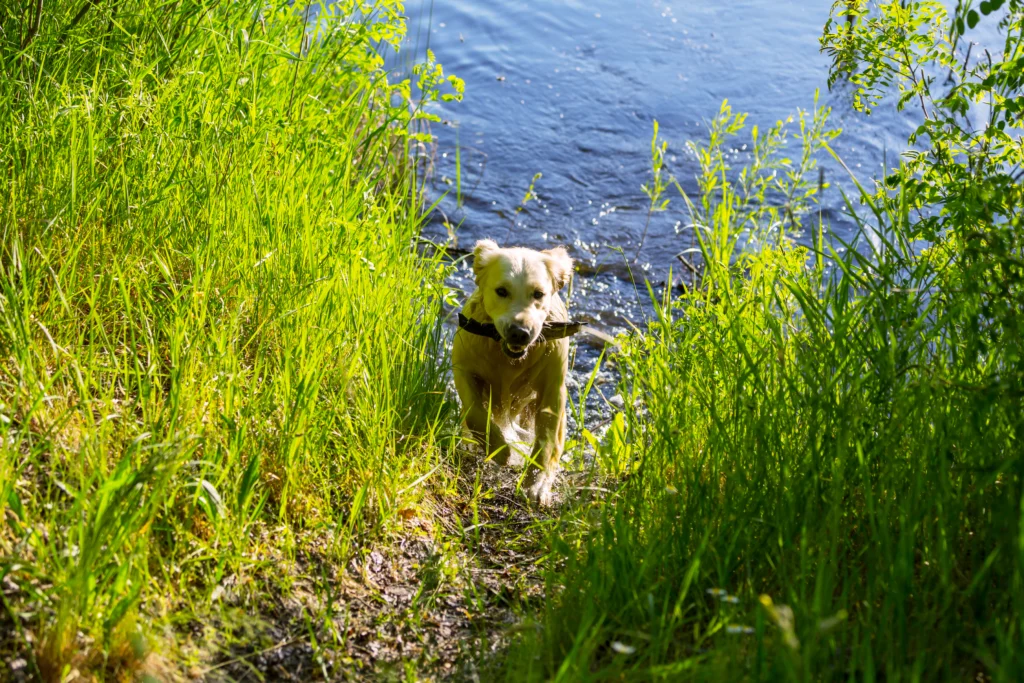
The Environmental Pawprint of Dogs
Dogs can affect the environment in various ways:
- Waste Management: Dog waste left uncollected can contribute to water pollution if it enters storm drains and waterways. Improper disposal can also attract flies and other pests.
- Habitat Disruption: Off-leash dogs exploring natural areas can disturb wildlife and damage delicate ecosystems.
- Resource Consumption: Food production for dogs has an environmental footprint, including land use, water consumption, and greenhouse gas emissions.
Waste Management Regulations
West Washington, like most states, has laws related to pet waste disposal. Here’s what you need to know:
- Pooper Scooper Laws: Most cities and counties in West Washington have ordinances requiring dog owners to pick up after their dogs in public spaces and dispose of the waste properly.
- Fines for Non-Compliance: Failure to pick up after your dog can result in fines.
- Designated Waste Disposal Areas: Some parks and trails might have designated dog waste disposal areas with bins for waste collection.
Responsible Dog Waste Management Practices
Beyond legal requirements, responsible waste management is crucial for environmental protection:
- Always Carry Waste Bags: Make it a habit to carry waste disposal bags whenever you’re out with your dog.
- Pick Up Waste Promptly: Don’t leave dog waste behind, even in grassy areas. Pick it up immediately and dispose of it properly.
- Double-Bagging: Consider double-bagging waste, especially in warmer weather, to minimize odor and ensure proper containment.
- Composting Options: Some municipalities offer pet waste composting programs. Research if this option is available in your area.
Minimizing Environmental Impact During Dog Outings
Enjoying the outdoors with your dog comes with environmental responsibility:
- Leash Laws and Responsible Off-Leash Etiquette: Respect leash laws in public spaces. In off-leash areas, ensure your dog’s voice control and avoid disturbing wildlife.
- Sticking to Trails: Stay on designated trails to minimize disruption to natural habitats.
- Picking Up Trash: Not only pick up after your dog, but also collect any litter you encounter on your walks.
Reducing Your Dog’s Environmental Footprint
Consider these options to minimize your dog’s overall environmental impact:
- Sustainable Dog Food: Research dog food companies committed to sustainable practices, such as using recycled packaging or ethically sourced ingredients.
- Eco-Friendly Dog Supplies: Choose durable, long-lasting dog toys and accessories made from recycled materials.
- Water Conservation: Use a portable water bowl and avoid letting your dog run the tap continuously.
Resources for Eco-Conscious Dog Ownership
- Leave No Trace Center for Outdoor Ethics: Promotes responsible outdoor recreation practices, including tips for dog owners.
- Sustainable Dog Food Companies: Research companies with eco-friendly practices and a commitment to ethical sourcing.
- Local Animal Shelters and Rescue Organizations: They might offer resources or workshops on responsible dog ownership and environmental awareness.
Benefits of Eco-Conscious Dog Ownership
Being an eco-conscious dog owner offers numerous benefits:
- Protecting the Environment: Responsible waste management and minimizing your dog’s footprint safeguard local ecosystems and waterways.
- Promoting Responsible Pet Ownership: Setting a good example encourages others to be responsible dog owners as well.
- Enhanced Quality Time with Your Dog: Enjoying nature responsibly strengthens the bond with your furry friend.
Dog Behavioural Training Laws in West Washington
Dogs are cherished companions, but their behavior can sometimes pose challenges. Fortunately, effective training can create well-mannered and well-adjusted canine citizens. While West Washington doesn’t have specific laws mandating dog training, there are regulations and industry standards that promote responsible ownership and address potential behavioral issues.

The Importance of Dog Training
Dog training offers numerous benefits for both you and your dog:
- Improved Communication: Training strengthens the bond between you and your dog by fostering clear communication and understanding.
- Safety and Well-being: Teaching basic commands like “sit,” “stay,” and “come” helps maintain control and ensure your dog’s safety in various situations.
- Reduced Behavioral Issues: Training can address unwanted behaviors like barking, jumping, or chewing, leading to a more peaceful coexistence.
- Enhanced Quality of Life: A well-trained dog is more enjoyable to live with and can participate in more activities with you.
Dog Training Laws
There are no laws in West Washington mandating dog training for all dogs. However, regulations and ordinances might come into play in specific situations:
- Dangerous Dog Laws: West Washington, like most states, has dangerous dog laws. Dogs deemed dangerous after exhibiting aggressive behavior might be subject to specific training requirements or restrictions.
- Leash Laws and Public Behavior: While leash laws are enforced in most public spaces, some off-leash areas have regulations requiring dogs to be under voice control, essentially implying basic obedience training.
- Animal Cruelty Laws: Failure to address severe aggression or behavioral issues through training could potentially be considered animal cruelty under West Washington’s animal cruelty laws.
The Role of Professional Dog Trainers
Professional dog trainers can be invaluable resources for pet owners:
- Behavior Modification: Trainers can help address specific behavioral problems like barking, chewing, or leash reactivity.
- Obedience Training: They can teach basic commands and desired behaviors to create a well-mannered canine companion.
- Puppy Training: Early socialization and puppy training classes can lay the foundation for a well-adjusted dog.
- Positive Reinforcement: Reputable trainers utilize positive reinforcement methods that are humane and effective.
Finding a Qualified Dog Trainer
Finding the right dog trainer is crucial for success. Here’s what to consider:
- Training Philosophy: Choose a trainer who prioritizes positive reinforcement methods and avoids harsh corrections.
- Experience and Credentials: Look for trainers with experience in your dog’s breed or specific behavioral concerns.
- Training Methods: Ask about the trainer’s methods and ensure they align with your comfort level and values.
Tips for Successful Dog Training at Home
While professional trainers offer valuable guidance, consistent training at home is key:
- Positive Reinforcement: Reward good behavior with treats, praise, or playtime to encourage desired actions.
- Patience and Consistency: Training takes time and dedication. Be patient and consistent with your commands and expectations.
- Short and Frequent Training Sessions: Short, positive training sessions are more effective than long, frustrating ones.
- Socialization: Socialize your dog from a young age to ensure they learn to interact appropriately with other dogs and people.
Resources for Effective Dog Training
- Association of Professional Dog Trainers (APDT): The APDT website allows you to search for qualified dog trainers in your area.
- Local Animal Shelters and Rescue Organizations: They might offer dog training classes or resources for responsible pet ownership.
- Online Training Resources: Several reputable websites and online courses offer valuable dog training information.
Benefits of Effective Dog Training
Investing in dog training offers numerous benefits:
- Safer and More Enjoyable Lifestyle: A well-trained dog is less likely to pose safety risks and is more enjoyable to have around.
- Stronger Bond with Your Dog: Effective communication and positive training strengthens the bond between you and your furry friend.
- Increased Confidence: A dog who understands commands and behaves appropriately is more confident and less likely to exhibit anxiety-related behaviors.
Dog Protection and Rescue Laws in West Washington
Dogs are cherished members of our families, and their well-being is a top priority. West Washington, like all states, has a legal framework dedicated to animal welfare, with a significant focus on protecting and rescuing dogs in need.

The Legal Landscape
Several key laws in West Washington contribute to dog protection:
- Animal Cruelty Laws: West Washington, like all states, has animal cruelty laws that prohibit intentional infliction of pain or suffering on animals. This includes neglect, starvation, dehydration, inadequate shelter, and failure to provide necessary veterinary care.
- Dangerous Dog Laws: These laws define criteria for deeming a dog “dangerous” based on past aggressive behavior. Regulations might include mandatory training, muzzling, leash restrictions, or even potential impoundment in severe cases.
- Leash Laws and Public Safety: Most cities and counties in West Washington have leash laws requiring dogs to be restrained on a leash in public spaces. This helps prevent dog bites and ensures the safety of both dogs and people.
- Tethering Laws: Some cities and counties might have restrictions on tethering dogs outdoors, outlining limitations on duration and access to food, water, and shelter.
Your Role in Dog Protection
Beyond legal mandates, responsible dog ownership plays a crucial role in protecting your dog:
- Providing Proper Care: This includes a nutritious diet, clean water, appropriate shelter, regular exercise, and veterinary care.
- Socialization and Training: Early socialization and training can help prevent behavioral issues that could lead to harm to your dog or others.
- Identification and Microchipping: Ensure your dog has proper identification tags and consider microchipping for permanent identification in case they get lost.
- Reporting Animal Cruelty: If you suspect animal cruelty, it’s your legal and ethical responsibility to report it to the appropriate authorities.
The Role of Animal Control
Animal control agencies play a vital role in enforcing animal cruelty laws, responding to stray dog calls, and investigating reports of neglect:
- Responding to Complaints: Animal control investigates reports of animal cruelty and takes appropriate action, potentially including seizing animals from neglectful situations.
- Impoundment of Stray Dogs: Lost or abandoned dogs are picked up by animal control and held for a period of time, allowing owners to reclaim them. Unclaimed dogs may be adopted out to new homes.
- Adoptions and Rehoming: Animal control agencies facilitate dog adoptions for homeless or surrendered dogs, offering them a second chance at a loving home.
West Washington’s Dog Rescue Landscape
West Washington has a network of dedicated animal shelters and rescue organizations committed to saving dogs in need:
- Non-Profit Animal Shelters: These shelters care for stray, abandoned, and surrendered dogs, providing them with veterinary care, shelter, and rehabilitation until they find forever homes.
- Breed-Specific Rescues: Many organizations focus on rescuing specific dog breeds, offering specialized care and knowledge for those breeds.
- Volunteer Opportunities: Shelters and rescues rely on volunteers for various tasks like dog walking, socialization, adoption counseling, and fundraising.
Resources for Reporting Animal Cruelty and Finding Rescue Organizations
- Washington State Department of Agriculture (WSDA) Animal Cruelty Reporting Hotline: ([800] 426-6110) Report suspected animal cruelty to the appropriate authorities.
- Animal Welfare Information Center (AWIC): ([invalid URL removed]) Provides resources for animal welfare, including finding shelters and rescues in your area.
- The Humane Society of the United States (HSUS): Offers resources on animal welfare and a directory of shelters and rescues.
The Importance of Dog Protection and Rescue
Dog protection and rescue efforts offer numerous benefits:
- Reduced Animal Suffering: Effective enforcement of animal cruelty laws and the work of rescue organizations prevent countless dogs from enduring neglect or abuse.
- Increased Adoption Rates: Rescue efforts provide loving homes for homeless dogs, decreasing the number of animals in shelters.
- Promoting Responsible Ownership: Education and awareness campaigns encourage responsible pet ownership practices, leading to fewer dogs entering shelters.
Dog Entertainment and Work Laws in West Washington
Dogs are more than just companions; they’re talented, intelligent beings with a desire to work and play. While West Washington doesn’t have a single, overarching set of “dog entertainment and work laws,” there are regulations and industry standards that govern how dogs can participate in these activities.

The Evolving Landscape of Dog Entertainment
Dog entertainment encompasses various activities where dogs perform or participate for amusement purposes. Here’s a breakdown of considerations:
- Public Performances: Cities might have regulations for permits and animal welfare standards for dogs participating in public performances like dog shows or agility competitions.
- Filming and Photography: Production companies might have specific guidelines for animal handling and welfare during filming involving dogs.
- Animal Actors: West Washington likely adheres to the American Humane Association (AHA) Guidelines for the Safe Production of Motion Pictures, Television Programs, or Theatrical Productions Involving Animals.
Regulations for Dog Entertainment
While there isn’t a single set of laws, here are some relevant regulations:
- Animal Welfare Laws: West Washington’s animal cruelty laws apply to all situations, including entertainment. Dogs must be handled humanely and not subjected to stress, exhaustion, or pain during any activity.
- Local Ordinances: Cities and counties might have specific ordinances related to animal performances or events involving dogs.
- Industry Standards: Organizations like the American Kennel Club (AKC) have specific regulations for dog shows and competitions, prioritizing animal welfare.
Prioritizing Responsible Dog Entertainment
Beyond legal requirements, prioritize responsible pet ownership when considering dog entertainment:
- Breed Suitability: Choose activities that suit your dog’s breed, age, and physical capabilities.
- Positive Reinforcement Training: Train your dog using positive reinforcement methods to ensure they enjoy participating.
- Breaks and Rest Periods: Provide ample breaks, water, and shade to prevent exhaustion or overheating.
- Monitoring for Stress: Observe your dog’s behavior and avoid activities causing stress or anxiety.
The World of Working Dogs
Working dogs play crucial roles in various sectors:
- Search and Rescue: Trained dogs assist search and rescue teams in locating missing persons.
- Law Enforcement: K-9 units assist law enforcement with tasks like drug detection and tracking suspects.
- Service Animals: Guide dogs, hearing dogs, and other service animals assist people with disabilities.
- Therapy Animals: Therapy dogs provide comfort and emotional support in hospitals, nursing homes, and other settings.
Laws and Regulations for Working Dogs
Regulations for working dogs vary depending on the specific field:
- Search and Rescue: These dogs might need certifications from specific organizations to participate in official operations.
- Law Enforcement: K-9 units undergo rigorous training and certification processes.
- Service Animals: Federal laws protect the rights of people with disabilities to have service animals in public spaces.
- Therapy Animals: While not federally mandated, therapy animal programs often have specific requirements for temperament evaluation and training.
Ensuring Success for Working Dogs
Here’s how to ensure your dog thrives in a working role:
- Temperament Suitability: Select dogs with the right temperament and trainability for the specific job.
- Specialized Training: Work with qualified trainers experienced in training dogs for specific tasks.
- Proper Care and Conditioning: Provide working dogs with excellent nutrition, veterinary care, and physical conditioning.
- Retirement Plans: Have a plan for your dog’s retirement when they are no longer suitable for active duty.
Finding Resources for Dog Entertainment and Work Opportunities
- American Kennel Club (AKC): The AKC website provides resources for dog shows, obedience training, and canine good citizen programs.
- National Search and Rescue Dog Association (NSRDA): The NSRDA website offers information about search and rescue dog training.
- Alliance of Therapy Dogs: The Alliance of Therapy Dogs website provides information about therapy animal programs and certification.
Dog Technology and Innovation Laws in West Washington
The world of technology is rapidly evolving, and our canine companions are no exception. Innovative gadgets and advancements in animal health are revolutionizing the way we care for our dogs. However, navigating the legal landscape surrounding pet tech products and innovations in dog health technology in West Washington can be a challenge.

The Rise of Pet Tech
The pet tech industry is experiencing a significant boom, offering a wide range of products for dogs:
- Wearable Tech: Smart collars and trackers monitor activity levels, sleep patterns, and even location in case your dog gets lost.
- Remote Training Devices: Electronic collars with shock or vibration features are used for training purposes in some cases.
- Food and Water Dispensers: Automated feeders and water dispensers ensure your dog receives consistent meals and hydration, even when you’re away.
- Interactive Toys: Tech-enabled toys stimulate your dog’s mind and provide entertainment, reducing boredom and destructive behavior.
- Telemedicine for Pets: Emerging technologies allow for virtual consultations with veterinarians, offering convenient access to pet care.
Legal Framework for Dog Tech
While West Washington doesn’t have specific laws solely targeting dog tech products, there are existing regulations and considerations to be aware of:
- Food and Drug Administration (FDA): The FDA regulates pet food and some animal health devices. Certain tech products, like automated feeders that dispense medication, might fall under FDA regulations.
- Consumer Protection Laws: General consumer protection laws apply to pet tech products. These laws ensure products are safe and function as advertised.
- Potential for Animal Cruelty: While some training devices offer benefits, technologies causing undue pain or discomfort to dogs could be considered animal cruelty under West Washington’s animal cruelty laws.
Prioritizing Responsible Use of Dog Tech
Beyond legal considerations, prioritize responsible pet ownership when using dog tech:
- Research Products Thoroughly: Research the product’s safety, features, and potential risks before purchase.
- Consult Your Veterinarian: Discuss using any tech product with your veterinarian, especially those related to health or training.
- Focus on Positive Reinforcement: Utilize technology to complement positive reinforcement training methods for optimal results.
- Monitor Your Dog: Don’t rely solely on technology; observe your dog’s behavior and adjust usage as needed.
The Future of Dog Health Technology
Innovations in animal health technology hold significant promise for canine well-being:
- Wearable Tech for Health Monitoring: Advanced wearables could offer real-time data on vital signs, activity levels, and potential health concerns.
- Remote Diagnostics and Treatment: Emerging technologies might allow for remote monitoring and diagnosis of certain health conditions in dogs.
- Gene Editing and Precision Medicine: Advancements in gene editing could potentially lead to therapies for inherited diseases in dogs.
- AI-powered Training Tools: Artificial intelligence-powered training tools could personalize training approaches for individual dogs.
The Need for Regulatory Frameworks
As dog health technology advances, clear regulatory frameworks are crucial:
- Safety Standards: Standardized safety protocols are needed to ensure the well-being of dogs using these technologies.
- Data Privacy: Regulations are needed to protect the privacy of data collected by pet tech devices.
- Ethical Considerations: Discussions are ongoing regarding the ethical implications of gene editing and other emerging technologies in animal health.
Finding Resources for Reputable Dog Tech and Innovation
- Consumer Reports: Consumer Reports provides unbiased reviews of various pet tech products.
- American Veterinary Medical Association (AVMA): The AVMA website offers information and resources on pet technology.
- Industry Associations: Organizations like the Pet Wearable Association (PWA) promote innovation and responsible practices in pet tech.
The Benefits of Responsible Dog Technology
Incorporating responsible dog tech offers numerous advantages:
- Enhanced Care and Monitoring: Advanced technology can help monitor your dog’s health and well-being, potentially leading to earlier detection of health issues.
- Improved Training Outcomes: Tech-assisted training tools can enhance training effectiveness and strengthen the bond between you and your dog.
- Convenience and Peace of Mind: Automated feeders and remote monitoring features offer convenience and peace of mind for pet owners.
Human Coexistence Laws in West Washington
Dogs aren’t just pets; they’re cherished companions who enrich our lives. In West Washington, like many states, there’s a growing recognition of the human-animal bond and the importance of promoting positive coexistence between dogs and their human families.
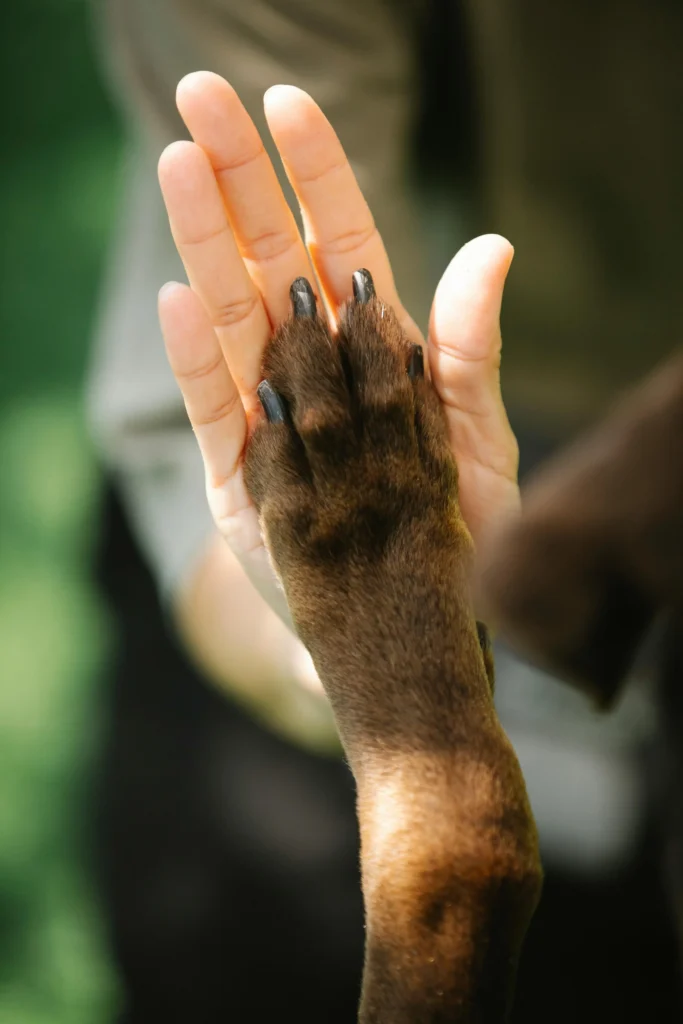
The Importance of Human-Dog Coexistence
The human-animal bond offers numerous benefits for both humans and dogs:
- Reduced Stress and Improved Mental Health: Studies show interacting with dogs can lower stress levels, decrease anxiety, and promote overall well-being.
- Increased Socialization and Physical Activity: Dog ownership encourages outdoor activities and interaction with other dog owners, fostering social connections.
- Enhanced Sense of Purpose and Responsibility: Caring for a dog provides a sense of purpose and responsibility, especially beneficial for individuals living alone or seniors.
Laws and Initiatives
West Washington doesn’t have a single law solely focused on human-dog cohabitation. However, several regulations and initiatives contribute to positive interactions:
- Public Access Laws: Many cities and counties in West Washington have laws allowing well-behaved dogs in designated public spaces like parks, trails, and even some restaurants with outdoor seating.
- Dog-Friendly Housing Options: An increasing number of apartment complexes and rental properties in West Washington are becoming dog-friendly, acknowledging the growing demand for pet-inclusive living spaces.
- Therapy Animal Programs: Hospitals, nursing homes, and other facilities might have therapy animal programs where approved dogs provide comfort and emotional support to patients or residents.
- Dog Park Initiatives: Many communities invest in building dog parks, offering dedicated spaces for dogs to socialize and exercise off-leash in a safe environment.
Building a Strong Bond with Your Dog
While laws and initiatives pave the way for positive coexistence, building a strong bond with your dog goes beyond legal requirements:
- Positive Reinforcement Training: Utilize positive reinforcement methods like treats, praise, and playtime to create a happy and rewarding training experience.
- Socialization: Socialize your dog from a young age to ensure they learn to interact appropriately with other dogs and people, making them more comfortable in public spaces.
- Meeting Your Dog’s Needs: Provide your dog with adequate exercise, mental stimulation, proper nutrition, and veterinary care to enhance their well-being and foster a strong bond.
Resources
- Your Local Animal Shelter or Rescue: Shelters and rescues offer training classes, adoption counseling, and resources on responsible dog ownership.
- Association of Professional Dog Trainers (APDT): The APDT website provides resources on finding qualified dog trainers in your area.
- Dog Park Etiquette Resources: Organizations like the National Recreation and Park Association (NRPA) offer resources on dog park etiquette.
The Benefits of Positive Human-Dog Coexistence
Fostering positive human-dog coexistence offers numerous benefits:
- Happier and Healthier Dogs: Well-socialized and trained dogs experience less stress and anxiety, leading to a better quality of life.
- Stronger Human-Animal Bond: Positive interactions and shared experiences strengthen the bond between you and your dog.
- More Vibrant Communities: Dog-friendly policies create more inclusive spaces where people and dogs can coexist peacefully and enjoy the outdoors together.
Challenges and Considerations
While human-dog coexistence is generally positive, there are challenges to consider:
- Responsible Ownership: It’s crucial for dog owners to be responsible, cleaning up after their dogs, respecting leash laws, and ensuring their dogs are well-behaved in public spaces.
- Addressing Dog Bite Prevention: Public education initiatives and responsible ownership practices are essential to prevent dog bites and ensure safety for everyone.
- Addressing Noise Concerns: Excessive barking can be disruptive for neighbors. Training your dog and providing them with adequate mental and physical stimulation can help minimize nuisance barking.
Other Relevant Dog Laws in West Washington
Canine Good Citizen (CGC) Programs and Legal Benefits
Canine Good Citizen (CGC) programs are standardized training programs designed to teach dogs basic obedience and good manners. While participation in CGC programs isn’t mandated by law in West Washington, there can be some benefits:
- Reduced Insurance Rates: Some insurance companies might offer discounts on pet insurance for dogs who have completed CGC programs.
- Increased Housing Options: Landlords in dog-friendly housing complexes might favor applicants with dogs who have completed CGC training.
- Enhanced Public Perception: A CGC certification demonstrates your dog’s ability to behave appropriately in public spaces, potentially increasing acceptance in dog-friendly establishments.
Dog Insurance and Coverage Laws
Dog insurance isn’t mandated by law in West Washington. However, it’s a wise investment to consider, especially for puppies or dogs with a higher risk of health problems. Here’s what to know about dog insurance in West Washington:
- Coverage Options: Dog insurance policies typically cover veterinary costs for accidents, illnesses, and sometimes even surgeries.
- Policy Variations: Premiums and coverage vary depending on your dog’s breed, age, health, and the specific policy you choose.
- State Regulations: West Washington doesn’t have specific laws regulating dog insurance. However, general insurance regulations apply, ensuring fair practices from insurance providers.
Laws Regarding Dogs in Hot Cars and Animal Endangerment
Leaving a dog unattended in a hot car is a crime in West Washington under animal cruelty laws. Here’s a breakdown of the relevant regulations:
- Animal Cruelty Laws: These laws prohibit intentionally inflicting pain or suffering on animals. Leaving a dog in a hot car can lead to overheating, heatstroke, and even death, constituting animal cruelty.
- Good Samaritan Laws: West Washington likely has Good Samaritan laws that protect individuals who break into a hot car to rescue an animal in distress, as long as they have a reasonable belief the animal is in danger.
Legal Aspects of Dog Parks and Shared Spaces
Dog parks offer designated areas for dogs to socialize and exercise off-leash. Here’s what to know about dog park etiquette and regulations:
- Leash Laws: Leash laws typically still apply outside of designated off-leash areas within dog parks.
- Vaccinations: Most dog parks require dogs to be up-to-date on vaccinations to ensure the health of all canine visitors.
- Waste Removal: Dog owners are responsible for cleaning up after their dogs in dog parks and all public spaces.
- Aggressive Dog Policies: Dog parks might have policies regarding removing aggressive dogs to ensure everyone’s safety.
Dog-Related Property Damage and Homeowner’s Insurance
While you can’t completely eliminate the risk of dog-related property damage, responsible ownership and homeowner’s insurance can help:
- Training and Supervision: Proper training and supervision can help minimize the risk of your dog damaging furniture or other property.
- Homeowner’s Insurance: Most homeowner’s insurance policies cover dog-related damage to your own property, with limitations and exclusions depending on the specific policy.
- Liability Coverage: Consider liability coverage as part of your homeowner’s insurance to protect yourself financially if your dog damages someone else’s property.
Service and Working Dog Laws in Employment and Public Access
Federal laws, like the Americans with Disabilities Act (ADA), protect the rights of people with disabilities to have service animals in public spaces and housing. Here’s a breakdown of service and working dog laws:
- Service Animals: The ADA defines service animals as dogs trained to perform specific tasks for individuals with disabilities.
- Public Access: Service animals are allowed to accompany their handlers in most public spaces, including restaurants, stores, and government buildings.
- Working Dogs: While not covered under the ADA, working dogs like K-9 units or therapy animals might have specific access rights depending on their role and the establishment’s policies.
Animal Welfare and Protection Laws Against Neglect and Abandonment
West Washington, like all states, has animal cruelty laws that protect animals from neglect and abandonment. These laws outline what constitutes neglect and the potential consequences of violating these laws:
- Definition of Neglect: Neglect can include failing to provide adequate food, water, shelter, veterinary care, or socialization.
- Reporting Requirements: If you suspect animal neglect, it’s your legal and ethical responsibility to report it to the appropriate authorities.
- Penalties: Violations of animal cruelty laws can result in fines, jail time, and even the seizure of animals.
This comprehensive guide explored the legal landscape surrounding dog ownership in West Washington. We delved into training requirements, animal protection measures, regulations for dog entertainment and work, the burgeoning world of dog tech, and the importance of fostering positive human-dog cohabitation.
Compliance with dog laws isn’t just about avoiding penalties; it’s about creating a safe and enriching environment for both dogs and humans. Responsible ownership, through proper training, licensing, and adherence to leash laws and public space regulations, ensures the well-being of our furry friends and promotes a more harmonious community for all. By understanding legal frameworks and prioritizing responsible care, we can build strong bonds with our canine companions and contribute to a society that values animal welfare.
FAQs
Are there any breed restrictions in West Washington?
West Washington, like most states, generally doesn’t have statewide breed bans. However, some cities or counties might have restrictions on specific breeds considered potentially dangerous. It’s crucial to check with your local animal control department or municipality to understand any breed-specific regulations in your area.
Can I take my dog hiking in West Washington?
Many trails in West Washington allow dogs, but leash laws and specific regulations might apply. Always check the website or signage of the park or trail system you plan to visit for details on leash requirements, pet waste disposal protocols, and any restrictions on dog breeds or sizes.
What are the requirements for traveling with my dog out of state from West Washington?
Requirements for traveling with your dog can vary depending on the destination state. Generally, you’ll need proof of current rabies vaccination and a health certificate from your veterinarian. Some states might have additional requirements like quarantine periods. Always research the regulations of your destination state well in advance of your trip.
I’m fostering a dog from a rescue organization. Are there any specific laws I need to be aware of?
Even as a foster parent, you’re responsible for the well-being of the dog in your care. This means following general dog ownership laws like leash laws and waste disposal regulations. The rescue organization might also have specific protocols or requirements for foster care, so be sure to clarify these details beforehand.
What resources can help me learn more about dog laws in my specific city or county in West Washington?
Several resources can be helpful: * Local Animal Control Department Website or Phone Number: They can provide information on local ordinances and regulations related to dog ownership. * West Washington State Department of Agriculture Website: They might have resources on animal welfare laws and regulations. * Website of Your City or County Government: Local government websites often have sections dedicated to animal control or pet ownership regulations.

